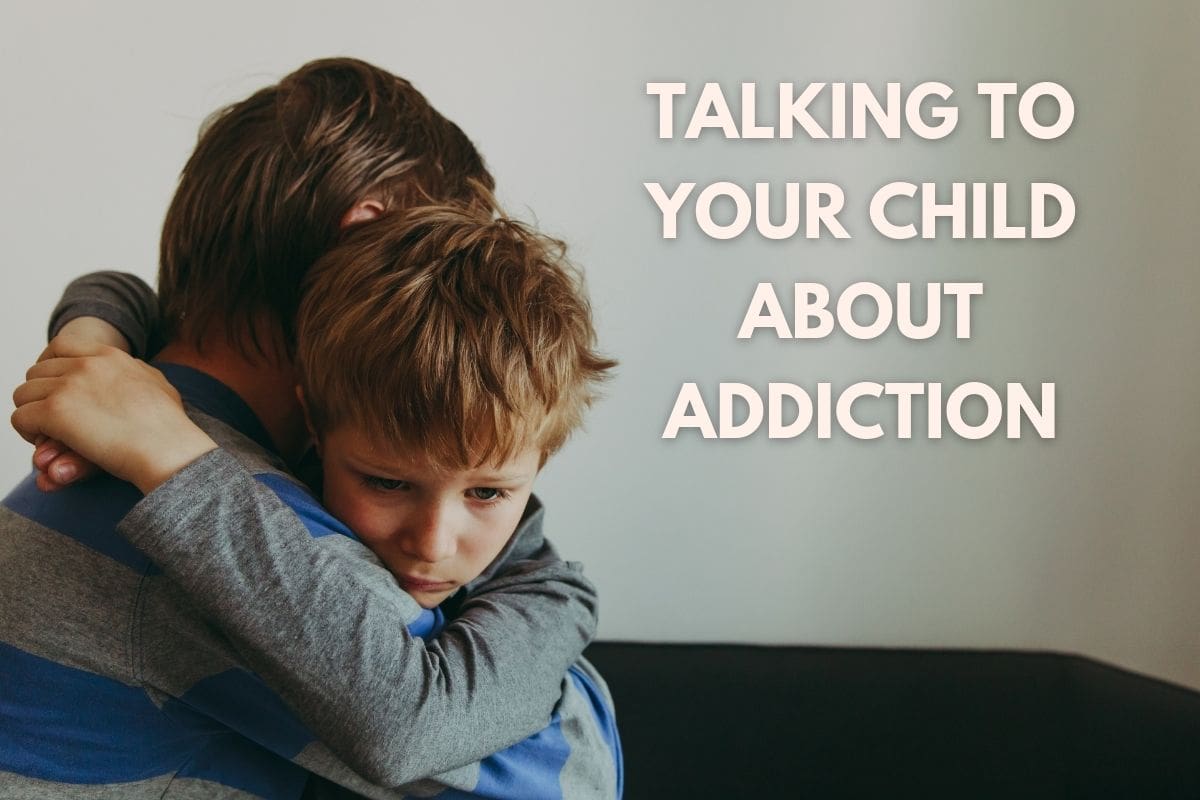Addiction is a family disease that reaches spouses, parents, siblings, and most of all, their children. The impact of a loved one’s drug or alcohol abuse can be felt far beyond the individual using drugs. Addiction can affect finances, lead to violence or other altercations, missed deadlines and appointments, and otherwise disturbing the peace and security of “home”. To a young child, watching a parent with addiction can be scary and confusing. It can inflict tremendous stress on them, which can stunt their physical, mental, emotional, and social development. Even scarier, it can significantly increase the likelihood that they turn to drug use themselves.
An important part of protecting a child through potentially traumatic instability at such an impressionable age is by talking it through with them. As a parent or guardian, addressing the situation can help them frame their parent’s drug use in a healthy way that prevents them from internalizing all the negative emotions they might feel. Substance abuse is a tough topic to address, but it’s important to discuss these things with your child. Your average parenting book likely doesn’t cover how to talk to your child about addiction, so it’s understandable if you’re not sure where to start. It’s a delicate subject and there’s no “right” way, however, here are some tips on how to conduct the discussion in a way that’s comforting but effective.
1. Talk to a child on their level
You may be unsure of how to speak to your child about addiction. Kids only process information based on their life experiences. While you may think that you have slipped things by them, they are more aware of what’s going on than you may think. They may notice a parent sleeping too much, or a brother that behaves erratically.
The easiest way to start a conversation about these difficult topics is to ask them how they feel. Remember, they won’t be able to articulate the way you can, but if you listen carefully, they will tell you how they feel.
2. Be honest about the situation
Never lie to a child or make up something to divert the issue. Always be upfront and honest. Kids know when you are lying, and they know if what you are telling them doesn’t match what they observe. Drugs and alcohol are very prevalent through the internet and social media, so they probably understand more than you think. They don’t need to know specific details, but they deserve honesty.
3. Use simple stories
When a child is under the age of ten years old, they need to be able to speak freely to their parents. They should be able to express their fears without worrying about repercussions. It’s best to use stories or illustrations to help them understand. Protecting our children is our most fundamental responsibility. Even if it means keeping them safe from a parent or a sibling.
Leveling with Teens
The preteen years can be difficult. Students hear about the harm of drugs and alcohol in school almost every day. Don’t give them a lecture, but rather stick with the truth. This is a good time to talk about the dangers of drugs and their unhealthy effects on the body. Explain the odd behaviors they may witness.
A teenager can better understand addiction. The caveat is that at this rebellious age, they may or may not want to hear what you have to say. Don’t use this as a time to lecture them, instead, talk with your teen in a way that makes them comfortable. While you may try to gloss over the situation with other age groups, teens can handle what you tell them. Don’t speak down to them or insult them by not giving them the whole truth.
Other Things to Consider When Dealing With Addiction
Children can feel any tension or angst in your home. While you may not want to sit down with them and have this discussion, it’s necessary. Your kids may require therapy to help them deal with the chaos, so seek out a professional.
It’s important to let your kids know that the addiction is not their fault. Avoiding this conversation can aid their feelings of guilt. They automatically feel they are the reason that one of their parents is acting strangely. You must reach out to your child within their ability to understand the situation. Learn more with this guide for children with addicted parents.


































